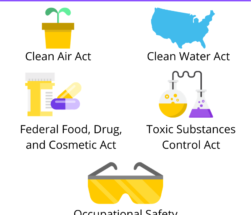In today’s rapidly changing world, sustainability is no longer just a buzzword – it has become a crucial aspect of every industry, including the tech niche. As businesses increasingly commit to reducing their carbon footprint and adopting eco-friendly practices, sustainable practices for business spaces have gained immense importance. In this article, we will explore some practical and innovative ways tech companies can create sustainable and environmentally friendly business spaces.
1. Energy-Efficient Lighting
One of the first steps towards creating a sustainable business space is to switch to energy-efficient lighting solutions. Traditional incandescent bulbs are known to consume a significant amount of energy and have a short lifespan. Instead, businesses should opt for greener alternatives such as LED lights. LED lights offer significant energy savings, have a longer lifespan, and produce less heat, reducing the cooling requirements of a space. Installing motion sensors can also help save energy by automatically turning off lights in unoccupied areas.
2. Smart Thermostats
Heating and cooling systems in business spaces account for a large portion of energy consumption. By integrating smart thermostats, businesses can achieve optimal control over temperature settings. These devices use advanced sensors and artificial intelligence to learn patterns and adjust temperature settings accordingly. They can detect when a space is unoccupied and adjust the temperature to conserve energy. With remote access capabilities, smart thermostats enable businesses to control and monitor temperature settings from anywhere, maximizing energy efficiency.
3. Recycling and Waste Management
Implementing effective recycling and waste management practices is essential for maintaining a sustainable business space. Tech companies should encourage employees to recycle paper, plastic, and electronic waste. Setting up clearly labeled recycling bins throughout the office and providing educational materials can promote recycling habits. Additionally, partnering with specialized waste management companies ensures proper disposal and recycling of electronic waste, preventing hazardous materials from ending up in landfills.
4. Sustainable Procurement
Businesses can make a significant impact on sustainability by adopting sustainable procurement practices. When sourcing office supplies, tech companies should prioritize products made from recycled materials or those that are recyclable themselves. Further efforts can be made by partnering with suppliers who adhere to eco-friendly manufacturing practices. By consciously selecting eco-friendly options, businesses can drive demand for sustainable products, creating a positive ripple effect.
5. Alternative Transportation Options
Encouraging employees to commute via alternative transportation methods is another way to promote sustainability. Tech companies can implement initiatives such as providing bike racks, promoting carpooling programs, or offering subsidies for public transportation. These efforts not only reduce carbon emissions but also contribute to employees’ well-being by promoting physical activity and reducing traffic congestion around the office.
6. Green Technology Implementation
The tech industry itself plays a vital role in making business spaces sustainable. By developing and utilizing green technologies, companies can significantly reduce their environmental impact. For example, investing in energy-efficient servers, utilizing virtualization techniques to minimize hardware requirements, and implementing cloud computing infrastructure can lead to substantial energy savings. Additionally, tech companies can prioritize the use of eco-friendly materials in their hardware designs and encourage responsible use and disposal of electronic devices.
7. Employee Education and Engagement
Sustainability in business spaces can only be achieved with the active participation of employees. Educating staff about the importance of sustainable practices and providing training on how to implement them is crucial. Companies can organize workshops, seminars, or even invite sustainability experts as guest speakers. Feedback mechanisms and suggestion boxes can encourage employees to contribute ideas and innovations for a greener workplace, ensuring everyone feels included in the sustainability journey.
As the tech industry continues to evolve, it is vital for companies to prioritize sustainability in their business spaces. By embracing energy-efficient lighting, smart thermostats, recycling initiatives, sustainable procurement, alternative transportation options, green technology implementation, and fostering employee education and engagement, tech companies can create a positive impact on the environment and set an example for others to follow.
Remember, sustainability is not just a responsibility – it is an opportunity to make a difference in the world and create a brighter future for generations to come.









